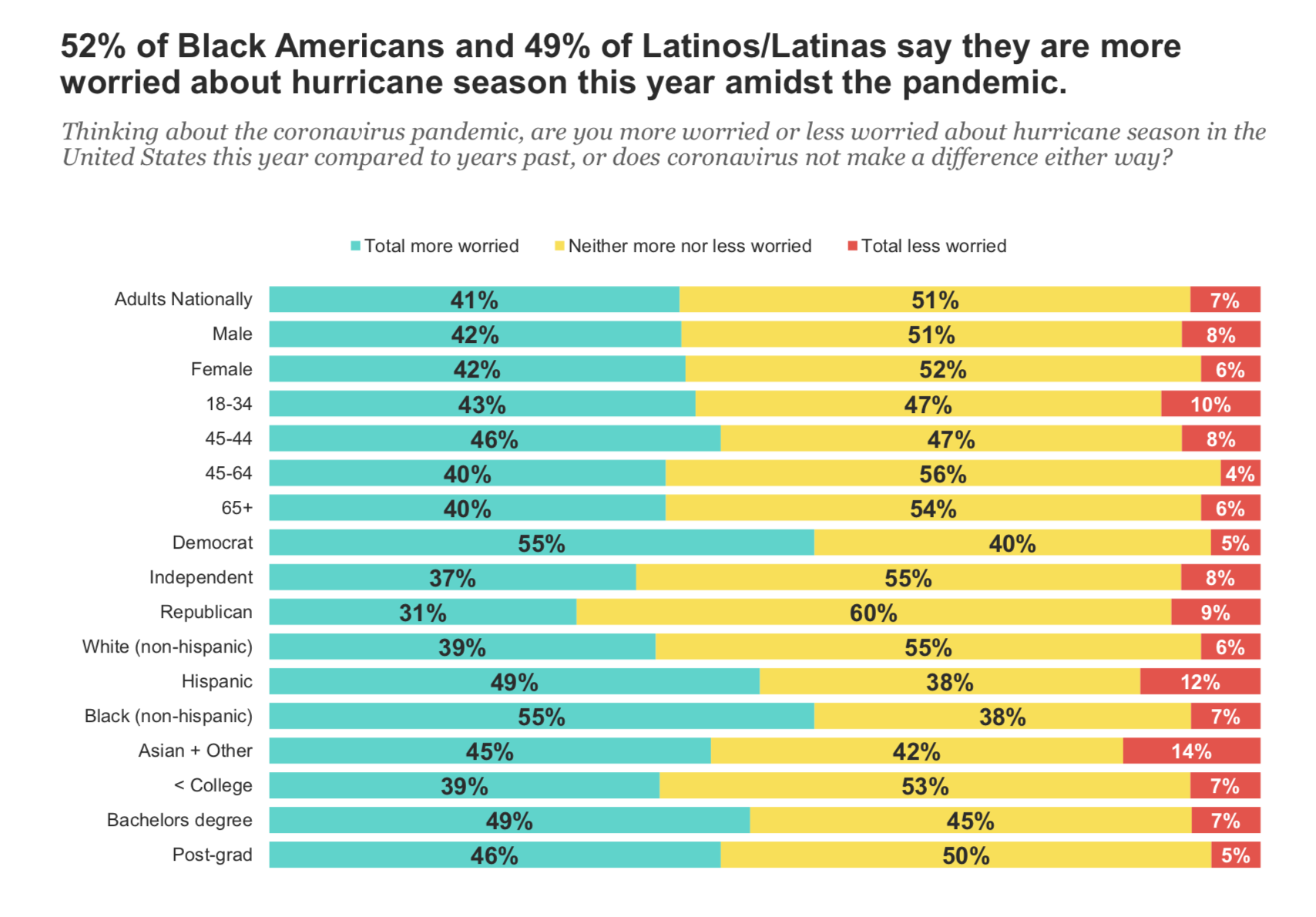Resources
Search below for resources covering the intersection of climate engagement, social science and data analytics.
RESULTS
Environmental Polling Roundup - February 11th, 2022
This post includes climate and environment headlines, data points, and key takeaways from recent public polls - including a new international sustainability poll from POLITICO and Morning Consult, findings about the public’s reactions to different terms for methane gas, and state-level polls in Indiana, Maryland, and Wisconsin.
Poll: Maryland Voters Support 60% Cut in Greenhouse Gas Pollution and Mandate for All-Electric New Buildings Statewide
A majority of Maryland voters want strong action on climate change from the General Assembly this year, with clear majorities support cutting greenhouse gas emissions 60% by 2030. Voters also support a mandate that newly constructed buildings be powered by electric-only energy systems for heating, hot water, and cooking.
- 63% of voters support a core proposal to cut greenhouse gas pollution 60% by 2030 (below 2006 levels), in line with key scientific recommendations.
- A majority (53%) of all voters believe state legislators should mandate that all new buildings use electric-only energy systems for space-heating, hot water, appliances, and cook stoves. 78% of Democratic voters support the electrification policy.
- 72% of Democratic voters say they are more likely to vote for candidates who prioritize clean energy policies to combat climate change. Those numbers are different for Republicans, with nearly half (46%) saying clean energy would have no effect on their vote.
Using Virtual Reality in Sea Level Rise Planning and Community Engagement—An Overview
Consider using virtual reality to convey the reality of sea-level rise. In three coastal communities, VR simulations of sea-level rise were found to do a better job than conventional maps in helping people visualize projected impacts. Residents familiar with the locations had especially strong emotional reactions to the images shown during the simulations. This study also finds that it is important to involve local residents in the planning and promotion of virtual reality simulations of sea-level rise.
Poll: Maryland Voters Support Action on Climate and Transportation
A poll conducted in January of 2021 finds strong support for policies to improve transportation systems and address climate change in the state.
96% of Maryland voters say that ensuring safe and timely commutes to work for Marylanders is an important objective. Around 60% of Marylander voters say that reducing traffic congestion, reducing pollution that contributes to asthma and lung disease, and ensuring low-income communities and communities of color have access to public transportation are very important issues for the Maryland Transportation Authority. Furthermore, nearly 66% of Maryland voters say that Maryland should immediately increase spending on public transportation infrastructure and support a variety of transportation investments, including by not limited to: investing in repairing and maintaining current transportation infrastructure, adding new bus routes and train lines to address transportation inaccessibility, providing tax credits or rebates to those purchasing electric vehicles, and adding bike lanes.
Poll: In time of COVID, two-thirds of Americans want climate action
Americans are worried about "triple threat" of hurricanes, COVID, & climate change. 52% of Black Americans and 49% of Latinos/Latinas say they are more worried about hurricane season this year amidst the pandemic. Half of adults in southeastern coastal states say they are more worried about hurricane season this year and 66% say addressing climate change should be a priority.
Poll: Americans on Clean Power
3 in 4 respondents said that it is a high priority to cut air pollution from energy production that has negative public health effects, including a slight majority of Republicans and 90% of Democrats. 7 in 10 said it is a high priority to reduce greenhouse gases from energy production, including just under half of Republicans and 91% of Democrats. After a briefing and assessment of arguments pro and con, 7 in 10 approved of the US participating in the Paris Climate Agreement.


